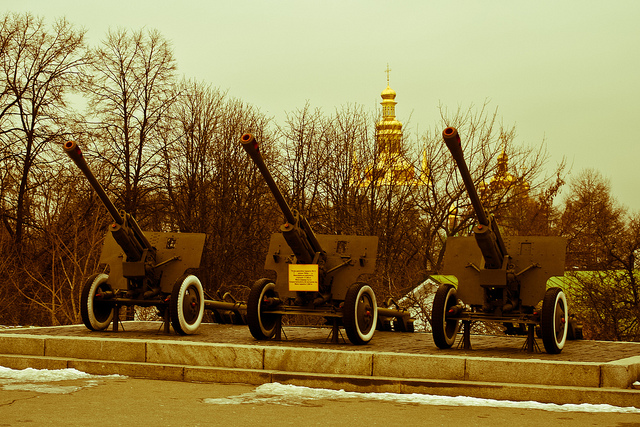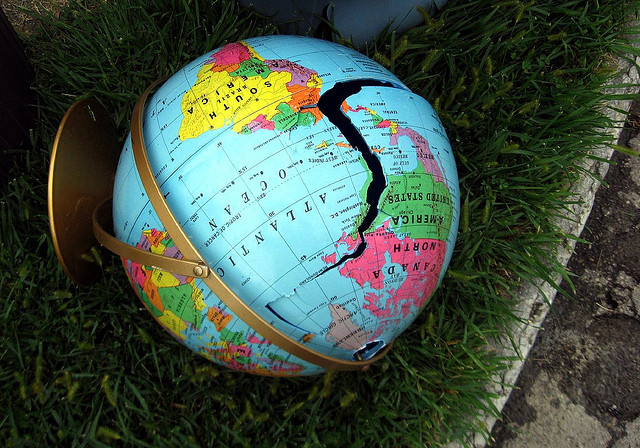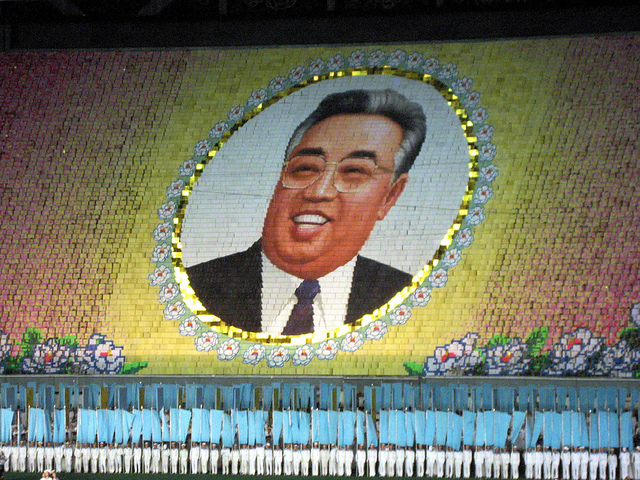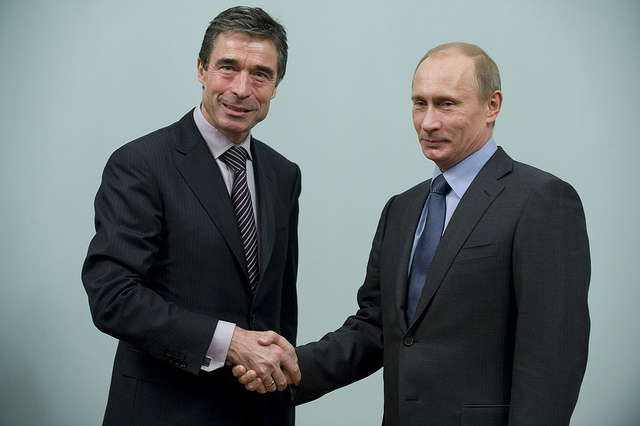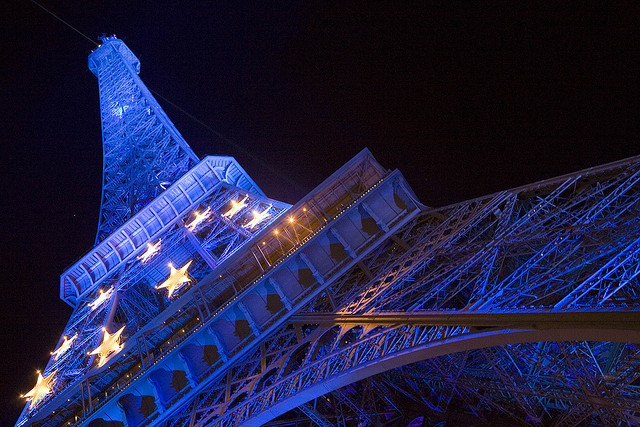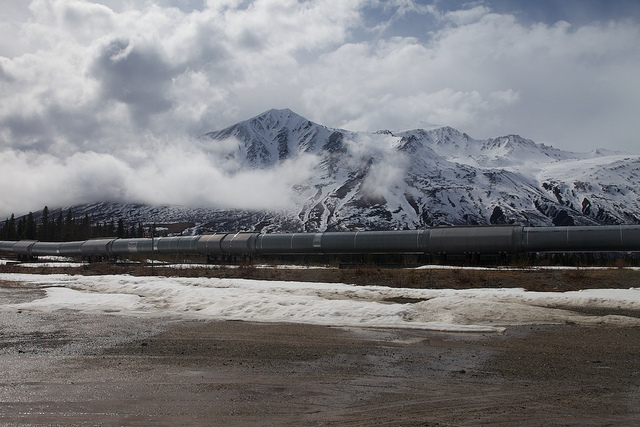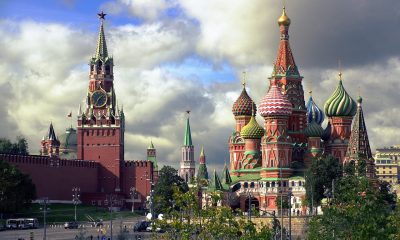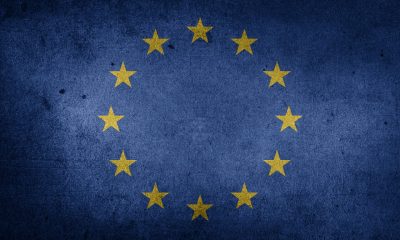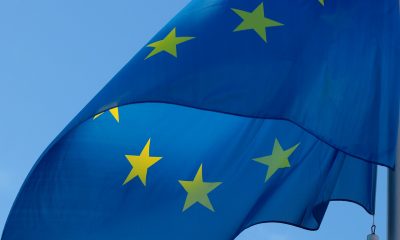Economy
Pax Europaea : The EU as Pacifier in the Frozen Conflict Areas
In this short paper I will try to analyse the unique opportunity the EU has in pacifying one of the still unresolved conflicting neighbouring areas that pose a threat to the stability and high level of cooperation that European countries have achieved in the last half of century. I am referring to the frozen conflicts around the Black Sea . More specifically, the list could be conceived as follows:
- Georgian-Abkhazian conflict;
- Georgian-Ossetian conflict;
- Nagorno Karabakh war;
- Transnistrian conflict.
In this context, the main centres of gravity are to my mind Russia, the US/NATO and more interestingly the EU.
Before going further into details, I would present the theoretical framework which will guide us in understanding one of the perspectives of the issues on the ground, namely the defensive realist approach. An analysis based on this perspective follows a pragmatic, non-normative line of thinking which tries to stay away from considerations like human rights, self-determination, ideology or other liberal-democratic political principles. It has nothing to do with the lack of humanity. The justification has to do with a stronger focus on the national interest of the states under consideration.
According to proponents of this view, the world that surrounds us is similar to a system made up of units which constantly interact with one another. The main units are the nation-states that operate under anarchy, meaning that there is no hegemon and no hierarchy of states. In this sense for example, the UN is totally dependent on the interests of the member countries and especially on the veto of the Permanent Five.
There is no legal separation of power or institutional control and no real accountability for states who are autonomous and free to pursue the domestic policies they are happy with. There are only international treaties that have strength for as long as signatory countries agree to it.
Furthermore, what motivates state behaviour is the perception of own or foreign power and the threat that comes with that power. This logic results in a balance of threat among nation states. According to this concept, states will align with other states to counterbalance another stronger and threatening state or group of states. The purpose of this balancing is not for offensive or expansionist reasons but for defensive ones.
I would take a different route from traditional neorealism by arguing that leaders or political figures do matter in international relations. However, states are reluctant to trust one another even if for the moment good relations might be in place. One leader can never know with whom he will have to deal in the future or what orientation the foreign policy of another state will take in longer term.
Finally, despite the common criticism that realism is an amoral or even immoral way of seeing things, I would argue that there is such a thing as morality of realism. Values like stability, prudence, pragmatism, understanding of political and social complexities, even respect for human life guide proponents of this perspective when thinking about possible solutions to common problems.
Moreover, realists are able to understand the level of regional development that the postmodern EU shows. Nevertheless, it is clear for them that in other parts of the world modernity rules under the shape of the nation states who selfishly, geopolitically and geostrategically pursue their own interests. Trust-building and paradigmatic shifts are slow processes that ought not to be forced or put aside for more interventionist measures.
Having said this, we can focus more on the EU as a potential pacifier in the above mentioned areas of the world. This part of the world is characterized by uncertainty, total mistrust, strategic thinking as foreign policy and never-ending tension. Boundaries among states are hard but at the same time very much disputed among antagonistic neighbours. History and the bloody memory is fresh in the mind of both the people and political leaders. Fear of the re-emergence of another Russian Empire or Soviet Union brings countries like Georgia, Ukraine and Moldova to pursue NATO and US led coalitions, which in turn fuels the Russian ego and builds up its security apparatus due to a Cold War view of American imperialism.
We could sum up that the region is characterized by a vicious cycle of threat perception. We could make an analogy to Europe’s modern history. Luckily for us, it ended up well in a common structure that has been able to integrate the national interest of the member states with the need for cooperation and collaboration. Peace is here to stay, at least while economies are stable and public opinion remains strong. The EU is the best example of how to overcome the dirty nature of politics.
In its relation to the outside world, the EU can rely on its soft power, the power of attraction. Furthermore, I would argue that the EU is more capable than other international actors of pragmatism, toleration of diversity and non-ideological policies. By all this, I am referring to the ability of practically conducting relations without setting strong political or economic standards.
The aim of the member states is still to satisfy the national interest regardless of their ideological aspirations. They might have adopted the liberal-democratic system and might pursue the extension of this system to interlocutors but the EU is not imposing a particular way of organizing societies, economies or the state. Rather, the EU is encouraging a change from within. At least unofficially. Officially the situation is different and it has to be different since the values that the EU puts on paper are basic for EU’s own existence.
Going back to our disputed territories, the EU could act as a strong mediator and hub for all the conflicting parties. The EU could show understanding because the member states can put themselves in the shoes of each of the forces. Europe had experienced separatism, militarism, realpolitik, spheres of influence and strategic alliance making and foreign policy. Conflict mediation, resolution, peace-building and even reconciliation are strong assets in EU’s pocket.
Not only, but the EU has also strong economic and energy interests in this area of the world. Instability there will lead to the possibility of instability here. European companies and Russian ones are doing business on a daily basis. The leverage is mutual and this leverage should not be used as an instrument to tie up ‘the enemy’ but to build trust through mutual advantageous cooperation. Energy security is one of the fundamental parts of EU’s security strategy. Russia, Ukraine, Georgia, Azerbaijan are both elementary sources of gas and oil and transit routes. The EU should stay away from demonizing the owners of those resources and from trying to get a grip on them because this is perceived by the later as a direct attack on their national interest. Countries rich in resources put the revenue that comes from it on top of the list in their security strategies and see it as a fountain of national prestige.
In order to achieve all the above the EU should follow its own path in becoming a global player. By this I mean keeping away from US instructions or way of doing things. As we all know, the US is suffering today from a very bad image due to its policing of the world. Unilateralism and interventionism should not be part of EU’s foreign policy vocabulary. Instead it should seek compromise, long-term trust-building and should push forward the idea of the EU as not taking sides unless it is the side of the civilian population.
Lastly, the EU should not be blinded by the aspirations of creating a strong economic and commercial bloc if this means threatening the same aspirations of other countries. This is dangerous and it can lead to defensive measures, like for example Russia’s pivot to Central and South East Asia. Partners should not be pushed away but attracted for the well-being of all parties.
To conclude, the area of frozen conflicts is still characterized by modernity and EU member states have managed to surpass the very same situation by own realization of the fact that mistrust leads nowhere. The EU has all the experience and instruments to show and persuade, not force other parts of the world to follow the same path. Preaching should be replaced by concrete proof of which system works best and by signs of trustworthy-ness to more sceptical neighbours.
Economy
Protecting Your Business From Rising Fuel Costs
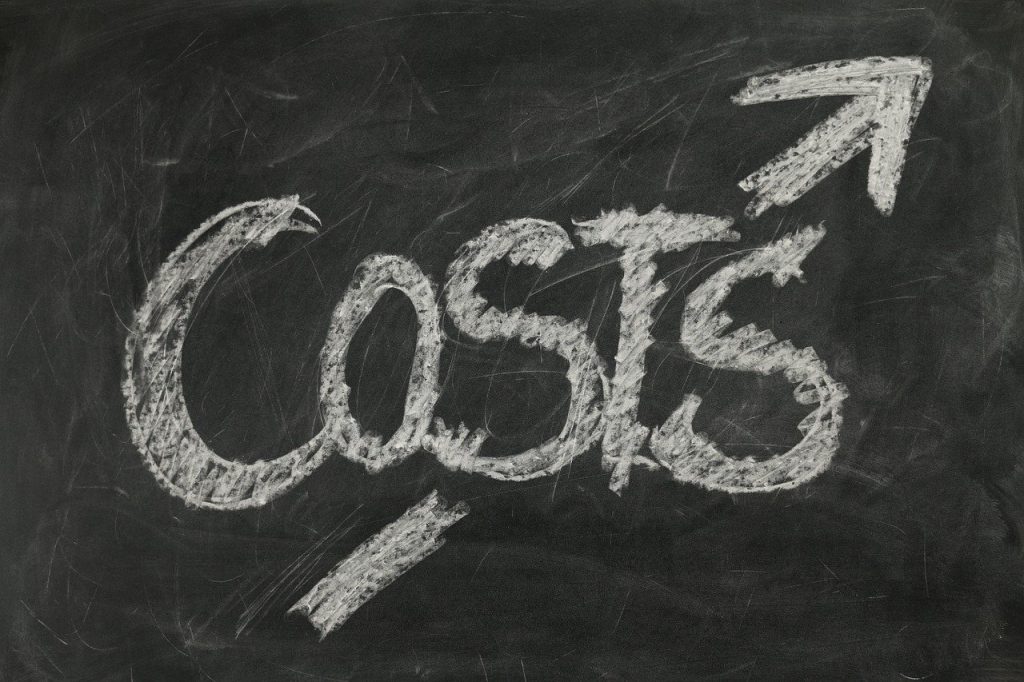
The cost of fuel is soaring globally, due to various factors, including the coronavirus pandemic and the ongoing conflict in Ukraine.
Businesses everywhere are feeling the burden that comes with increased energy costs. However, there are a number of things that experts have determined companies can do to fight back and protect their businesses from rising fuel costs.
Implement green measures
Dusistainbility has been a big trend in global business in recent years. Companies that have not yet embraced measures such as the paperless office and the use of solar power, many find that doing so now could help to offset some of the extra costs arising due to higher gas, oil, and electricity prices.
A four-day week
The benefits of a four-day week for employers and their employees have long been debated, but there is a lot of evidence to suggest that companies can be run just as efficiently in four days as they can in five. This could give companies struggling with the cost of heating, and lighting their offices, or running their machinery the opportunity they need to protect their business from fuel costs without losing money.
Should a factory, for example, close for one extra day per week, they would save 20 percent of its operating costs, and studies have shown that employees who work four days a week are around 20 percent more productive, which means they could save a great deal on the ongoing cost of fuel, without ruining their productivity or losing revenue. Many experts believe this to be a win-win situation.
Special offers
Of course, when the price of fuel rises, in certain industries, customers may be affected by those costs, and therefore less likely to make the same level of purchases they once did. Companies who find themselves in this position need to do whatever they can to encourage customers to buy.
For example, Volvo Penta, which sell luxury yacht and marine engines, among other applications, may find that due to the cost of fueling a vessel, fewer people are going out o their boats, causing sales to drop. By making special offers or putting together attractive packages, they can encourage more purchases to be made. If the product is good, and the price is right, it is easier to weather this particular storm.
Downsizing
Now that remote working is easier than ever, downsizing office space is set to be another important way that companies around the world can protect themselves from the rising cost of fuel. The fewer employees who need to be in the office or onsite, the smaller the office space can be, and the fewer resources will be required to keep it running smoothly, so expect to see more homeworking going forward.
The cost of fuel may be set to rise even further in the Autumn, and no one knows exactly what will happen beyond that, but there are a number of things businesses can do in mitigation, so it is almost certainly not time to panic yet.
Economy
Joao Vale e Azevedo: pessimistic prospects could be tackled by collectivity

As we enter the new year, the effects of 2021 are now echoing in the economy in 2022. According to the World Bank’s latest Global Economic Prospects report, global growth is expected to decelerate markedly from 5.5 in 2021 to 4.1 in 2002 and 3.2 percent in 2023. This has been proposed both in the case of developing and major economies, such as the case of the United States.
In 2021, governments around the world have suggested that it was a year of rebirth. However, current numbers are not showing that and so not everyone is trusting on this bet. This is the case of Joao Vale e Azevedo, chairman of KUNST Global – an equity firm based in London, Geneva, Zurich and Luxembourg. For him, the forecast is still negative for 2022 as inflation keeps on running critically in the US and in many European countries. But unlike in the 1970s and 1980s, the solution won’t lie in governments printing money like they did in the past.
The chairman of KUNST Global also doesn’t think that the so-called commodity crisis is temporary as the news might say. In fact, Azevedo believes that there is more to it than the effects of the pandemic. While the Covid-19 crisis has ignited the growth of e-commerce, Azevedo claims that this intensification in demand for goods would happen anyway and the problem is actually in the distribution industry: “It is unable to meet this increased demand. There is no labor, no trucks, nor ships. The offer is no longer able to meet the market demand and this is not a contingency, it is a physiological fact.”
Finally, the third and possibly the most concerning problem is the price of energy. “This is really a worrying question, and not only for our distant future, as it has been up to now, but also for our present,” explains Azevedo. “We are witnessing it on a daily basis: electricity and gas bills have skyrocketed. Families and companies, which were already suffering from the pandemic, do not know how to cope with the increases.”
Although propositions like moving from coal to gas or from oil to electricity may point the way out, Azevedo thinks we are completely deprived of the infrastructure and funds necessary to manage this change. What is more, the chairman of KUNST Global argues that present politics lacks long-term vision, which means politicians are often too focused on electoral cycles instead of considering the future – thus mining any possibility of investments for change.
In addition to that, Azevedo has been keeping a close eye on the war in Ukraine. In his opinion, if Russia persists in carrying on the war, not only this country will be doomed to bankruptcy, but the whole West could face a domino effect. “Regardless of this, the war in Ukraine means greater market instability, rising energy prices that are already out of control, and a further increase in inflation, which could reach double the current levels,” he adds.
However, not all hope is lost. Hopefully, the war in Ukraine will find a rapid resolution, which is something that could catalyze even more this sense of collectivity that Joao Vale e Azevedo sees growing after two years of pandemic. “The fact that we have had fewer opportunities for interaction has meant that we are now more aware of the value of those interactions, and probably also of human life. We are a stronger community. The challenges that await us are very difficult, but together we are much better prepared to face them,” he concludes.
Economy
How People Around The World Are Investing Their Money

One thing that everyone should aim to do with their spare cash is to invest it – as wisely as possible, but at least in a way which is going to lead to potentially high returns. If done correctly and with a bit of good fortune, it is perfectly easy to improve one’s wealth to a considerable degree this way, and it is therefore well worth people considering this.
As it happens, there are a lot of investment options that people are making use of all over the world, with some that are especially popular right now. Let’s take a look in some detail at some of the major ways in which people are investing their money – and making some considerable gains, in many cases.
Stocks & Shares
Arguably one of the most popular forms of investment is stocks and shares – which can be incredibly lucrative if it is done in the right way, and with the right set of circumstances behind an investment. Indeed, stocks and shares remain the number one investment that people are engaging in every day throughout the world, and with good reason. Not only is it potentially something that can bring considerable returns, it is also relatively straightforward to get into and learn at least the basics of, making it a very simple and easy form of investment for most people.
It also doesn’t require a huge amount of money to get going – although having that is obviously not going to hurt one’s chances of success starting out! In fact, it’s doable to get going with stocks and shares with literally a few spare pennies – so it really is something that pretty much anyone can get into and make use of. It can also be a good way to diversify and widen out a portfolio that may include other forms of investment as well.
Savings Accounts
Although many people think of investment and savings as two different things, they are really just two sides of the same coin. You can think of saving as a form of investment, especially if it is done in the right manner and with the right approach. Of course, in order to find success with this, it is important to make sure that you are choosing the best savings account there is. That means one that has a high enough interest rate for it to be worth it, as well as having other functions that might be important to an individual – such as the ability to take money out whenever you need to, for instance.
With interest rates diving all over the world, this is quickly becoming one of the less popular forms of investment – but for now it is still worth considering, as it can be a good way to at least store your spare cash as necessary. If nothing else, you’ll probably find that you are able to find yourself in a much better financial position this way soon enough, even if that doesn’t happen as quickly as it might with certain other investments.
Cryptocurrencies
Although there is some controversy around cryptocurrencies, there is no doubt that it is one of the world’s most popular forms of investment right now. There is also no doubt that it’s possible to make a lot of money this way – as some of the world’s richest people have done so already. Even in a much lesser sense, however, it is perfectly possible for an individual with a regular amount of wealth to make money investing in cryptocurrencies. And generally, this is done in a few key ways.
First of all, you can simply buy some crypto and then hold on to it, hoping for its value to improve and selling it on once it has done so. Alternatively, you might want to consider trading crypto coins by buying one kind and then trading into another as you think it might be lucrative. This takes a bit more knowledge, patience and skill, but the returns can be significant. Either of these can work very well, however, and they are worth thinking about at the very least.
A related form of investment, in that it too relies upon blockchain technology, is NFTs. These pieces of art can be bought and traded as above, and some of them are creating huge amounts of money for people right now, so it might well be worth getting into.
Spread Betting
Another form of investment that a lot of people are getting into in the past few years is something known as spread betting. This is where you place bets on a variety of outcomes on a particular event, whether it’s a sport, a political event or whatever else it might be. With the right bet and the right outcome, this can be a really effective way to make some money, and it is best done with the attitude of it being an investment rather than a bet – as this helps in keeping things a little more sensible.
To make the right decisions, it is helpful to be patient and work out what kinds of results are likely to occur, and to find them at a good price. Searching for NHL picks and horse racing tips is a good place to start for that. However it might be done, with care and attention this can prove to be a decent way to invest some spare money, so it is definitely something to think about.
Bonds
If you are particularly keen for a very safe form of investment, it is well worth looking into bonds. Bonds are something like a savings account, but with an important difference that needs to be understood well in order to make good use of them. Essentially, you buy a bond and you will be paid back your initial investment, plus any interest that may have accrued along the way too. They are very low-risk and yet can bring you a lot of money over the long-term, so they are worth looking into for pretty much anyone looking to make a little money on the side.
Bear in mind that you won’t be able to access the money during the fixed rate period, so you should only invest whatever you don’t need to have immediate access to. However, they offer higher interest rates than your average savings account, so it can be worth it.
Precious Metals
Another form of investment that many people around the world are investing in right now is precious metals. In truth, these are always popular, and it’s not too hard to appreciate why. After all, precious metals will generally always retain their value even when everything else in the world is going through turmoil. That is especially true of gold, which still holds the standard that the global economy works by – with the exception of cryptocurrency.
As you can see, precious metals are almost certainly worth considering at the very least if you want to invest your money wisely. But make sure that you are only putting what you can afford to lose into this investment, like any other. Although it is not the highest-risk investment, it is not zero-risk either.
Those are just some of the most popular investments around the world that people are making good use of right now. Any of these could be lucrative and useful for you, so take a look at them in turn and see whether any of them are suitable for your needs and purposes. You might be surprised at how effective they can be.
-

 Business12 months ago
Business12 months agoHow To Future-Proof Your Business With The Right Tools
-

 Travel10 months ago
Travel10 months agoTravelling from San Antonio to Guadalajara
-

 Travel7 months ago
Travel7 months agoTravel wellness tips for a healthier and more enjoyable journey
-

 Europe5 months ago
Europe5 months agoRecent Books by Boaventura de Sousa Santos: Law, Colonialism, and the Future of Europe

